Have you ever wondered why your search queries sometimes return different results from those of your friends or family?
That’s because search engines are increasingly employing personalized search algorithms to customize the information they present to individual users.
Let’s dive into the concept of search personalization and how it impacts your online experience.
What is Search Personalization?
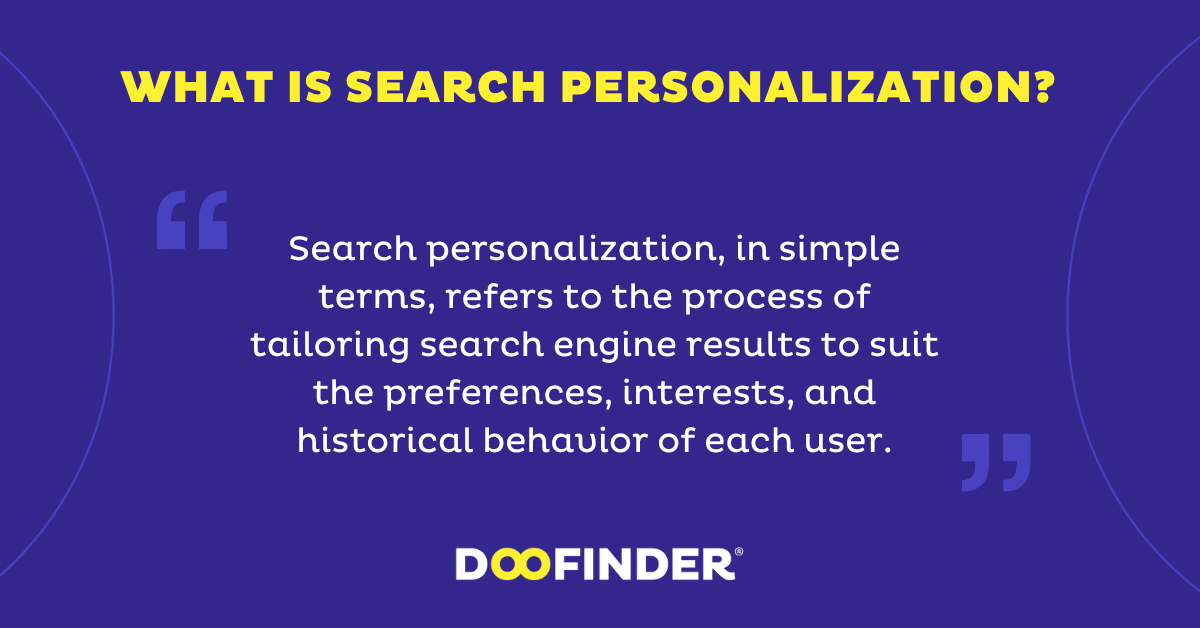
Search personalization, in simple terms, refers to the process of tailoring search engine results to suit the preferences, interests, and historical behavior of each user.
When you type a query into a search engine, it doesn’t just retrieve generic results; instead, it takes into account various factors to deliver personalized search results.
How Does Personalized Search Work?
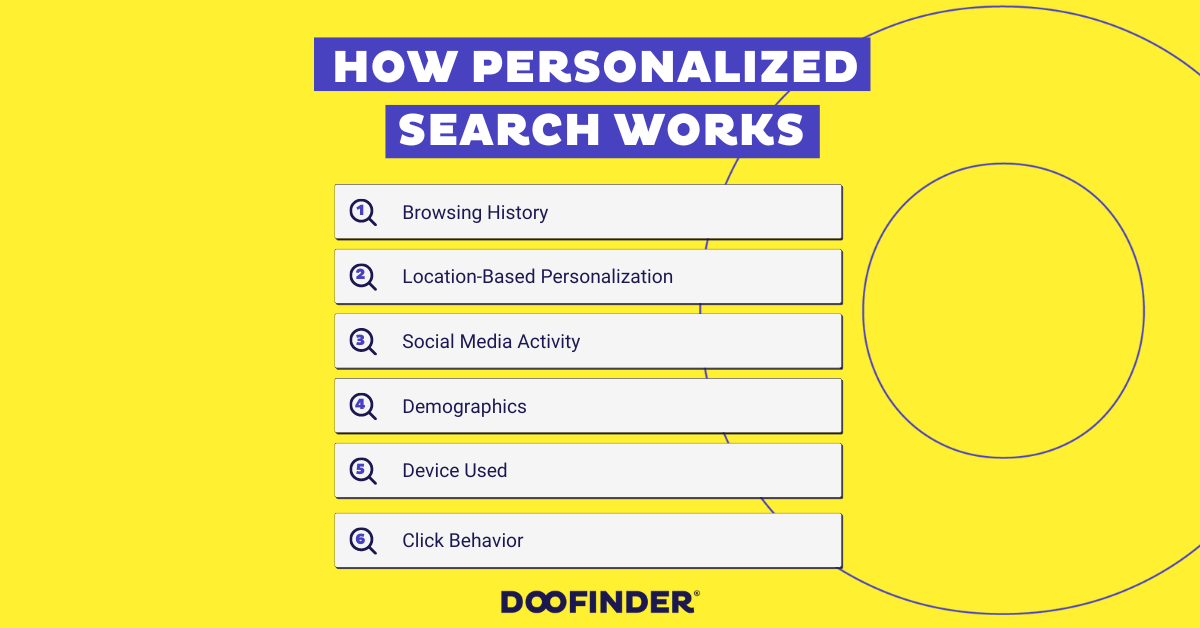
Now that we know what is meant by personalized web search, let’s explore how it works. Search engines employ sophisticated algorithms to personalize your search results. Some of the key factors that influence the personalization process include:
- Browsing History: Search engines remember your previous searches and the websites you’ve visited. This information helps them understand your interests and tailor results accordingly.
- Location-Based Personalization: Your physical location plays a significant role in search personalization. Local businesses and relevant information are given priority based on where you are.
- Social Media Activity: Search engines may also consider your social media interactions to better understand your preferences and interests.
- Demographics: Information like your age, gender, and language preferences can be used to refine search results.
- Device Used: The type of device you’re using, such as a smartphone, tablet, or desktop, can also influence the results shown to you.
- Click Behavior: Search engines analyze what links you click on from the search results to learn more about your preferences.
Artificial Intelligence’s Role in Personalized Online Shopping Experiences
Artificial Intelligence (AI) plays a pivotal role in revolutionizing eCommerce personalization.
By analyzing vast amounts of customer data, AI algorithms can extract valuable insights to offer tailored product recommendations, targeted marketing campaigns, and personalized shopping experiences.
According to a survey by Evergage,
88% of marketers have reported seeing measurable improvements due to personalization driven by AI.
AI-powered tools track and predict customer behavior, enabling businesses to proactively offer relevant product suggestions and personalized content.
With AI-driven dynamic pricing, businesses can optimize pricing strategies for individual customers, enhancing their sense of exclusivity and value.
By leveraging AI, businesses can deliver highly personalized search results, provide chatbot assistance, utilize image and voice recognition, and optimize inventory management.
Embracing AI in eCommerce not only enhances customer satisfaction but also drives sales and positions businesses as innovators in the digital landscape.
11 Ways to Personalize Search Results
Personalized search results have become a cornerstone of the modern online experience, providing users with tailored information that suits their preferences and needs.
Search engines employ various techniques to deliver these customized results.
Here are 11 effective ways they achieve search personalization:
1. Search Personalization for Enhanced Recommendations
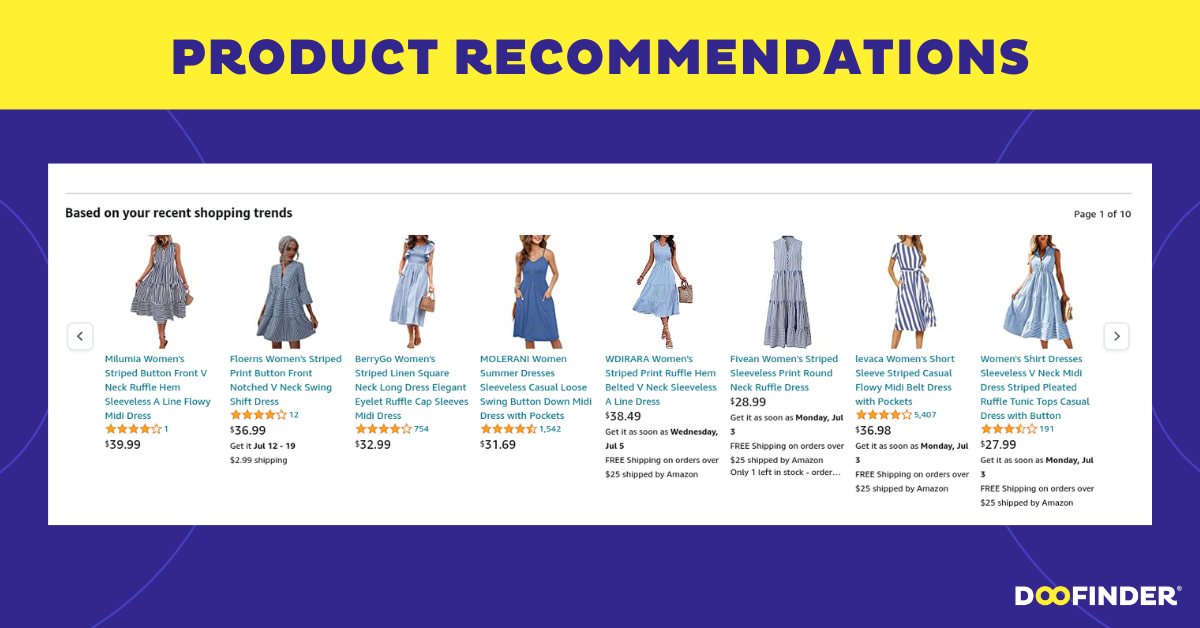
Search personalization involves tailoring personalized suggestions based on the user’s search and browsing history.
By analyzing a customer’s past search queries and interactions, you can offer customized recommendations that align precisely with their preferences and interests.
For instance, imagine a user looking for a new smartphone in an online tech store. Based on their previous searches for high-end devices and flagship models, the website recommends the latest cutting-edge smartphone that matches their preferences.
This smart search personalization helps customers discover new products that resonate with their needs and preferences, ultimately increasing the likelihood of making a purchase.
- An exemplary real-life implementation of this search personalization technique can be seen on Google’s search engine, where personalized search results are provided based on the user’s previous search history and behavior, offering a more tailored and relevant search experience.
2. Top Products Tailored to You
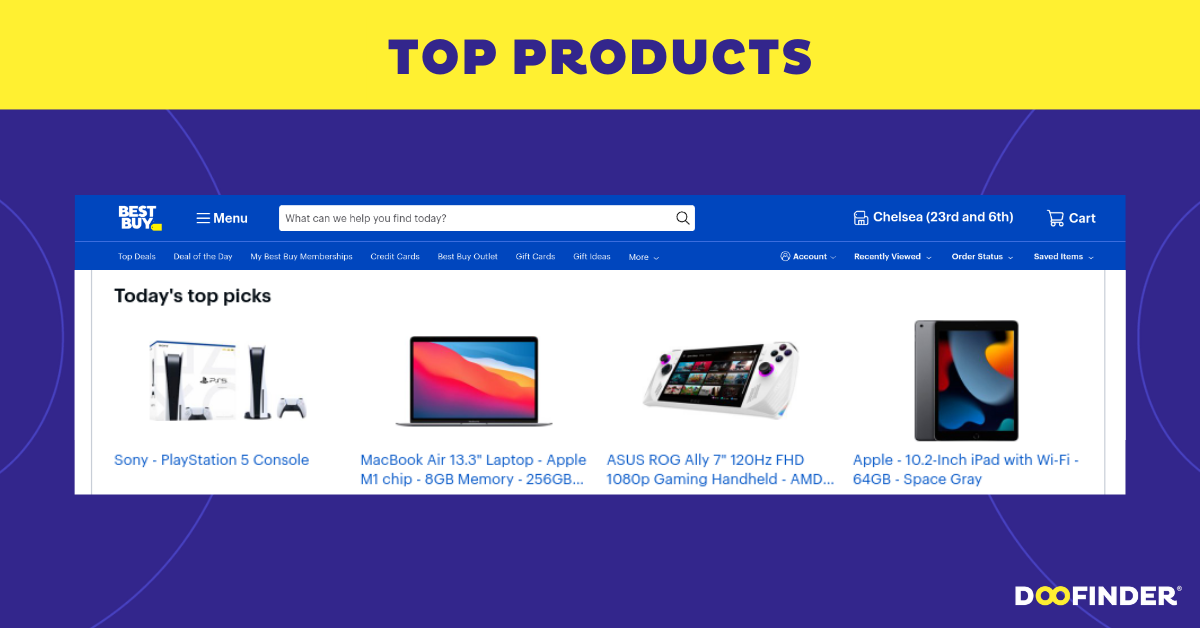
Showcasing top products with search personalization serves as powerful social proof for your offerings.
By featuring a section on your website that highlights the most popular or best-selling products based on individual user preferences, you create a sense of trust and credibility, significantly influencing customer behavior.
For instance, when a user searches for “laptops” on an online electronics store, the website displays a “Top Picks for You” section that showcases highly-rated laptops based on their browsing and purchase history.
This personalized approach helps users quickly identify the best products that align with their specific interests and needs.
- Retail giants like Walmart effectively implement this search personalization technique by presenting “Top Products Recommended for You” based on individual shopping behavior, guiding customers towards products that are likely to appeal to them personally.
3. Targeted Promotional Banners
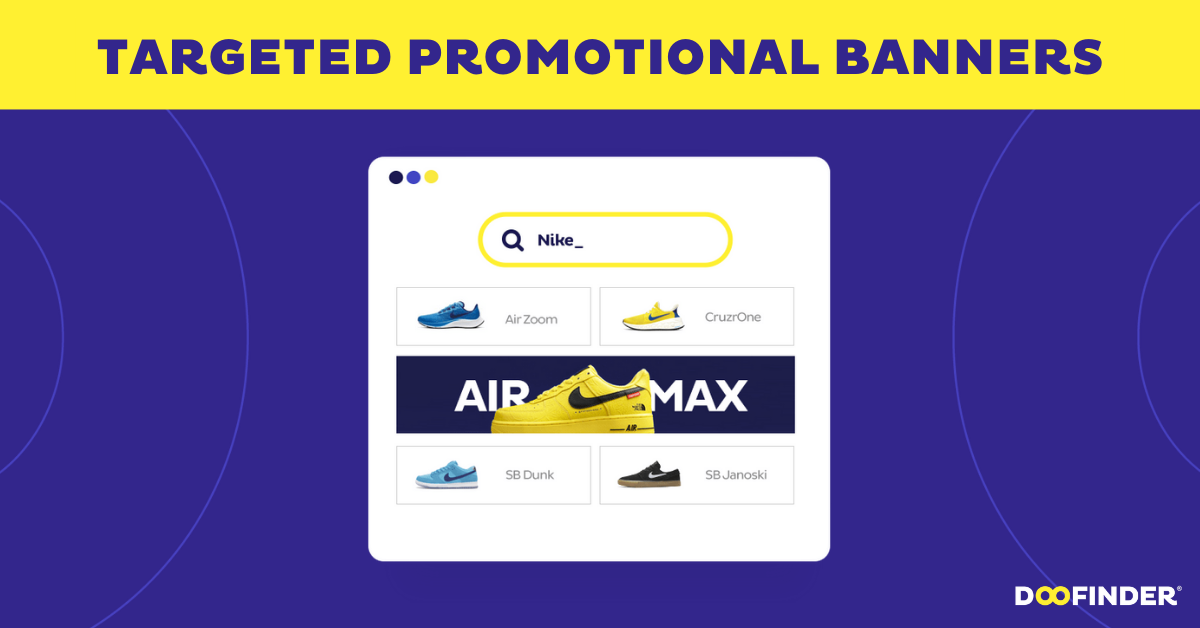
Search personalization goes beyond simple marketing messages by tailoring promotional banners to specific customer segments based on their search queries.
When a user enters a search term on your website, you can display targeted banners that align precisely with their interests, capturing their attention and increasing the chances of conversions.
For instance, a customer searches for “outdoor grills” on an e-commerce website.
The search personalization system recognizes their interest in grilling and displays banners with special offers on grilling accessories and barbecue essentials, enticing the customer to explore related products and make a purchase.
- Leading fashion retailers like Zara implement this search personalization technique by displaying personalized banners featuring trendy clothing lines and accessories based on individual search queries, elevating the overall shopping experience for their customers.
4. Smart Filtering Suggestions
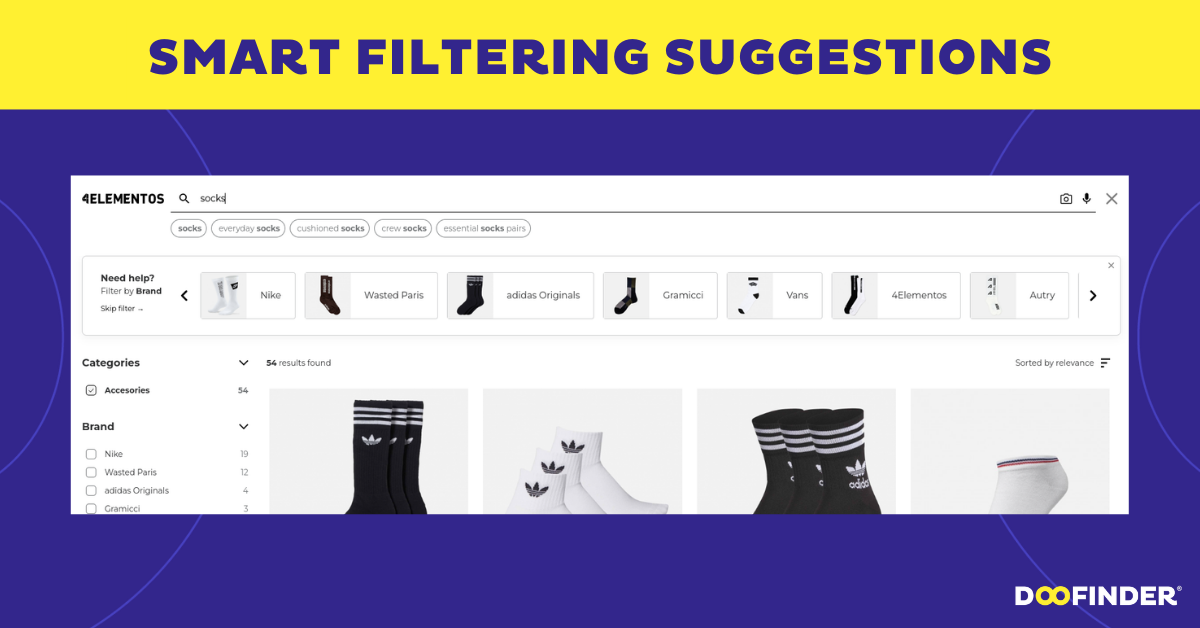
Empowering users with smart filtering suggestions during their search process is a key aspect of search personalization.
As customers begin typing their search query, the system can intelligently offer relevant search filter options, streamlining the shopping experience and helping customers find their desired products more efficiently.
For example, a user searches for “running shoes” on an athletic gear website.
The search personalization system provides smart filtering options such as “trail running,” “neutral cushioning,” and “size 10,” allowing the customer to quickly narrow down their search and find the perfect pair of running shoes.
- Leading online retailers like REI leverage this search personalization technique by suggesting relevant filters like activity type, brand, and customer ratings, making it easier for users to find precisely what they need.
5. Search Bar Suggestions with Search Personalization
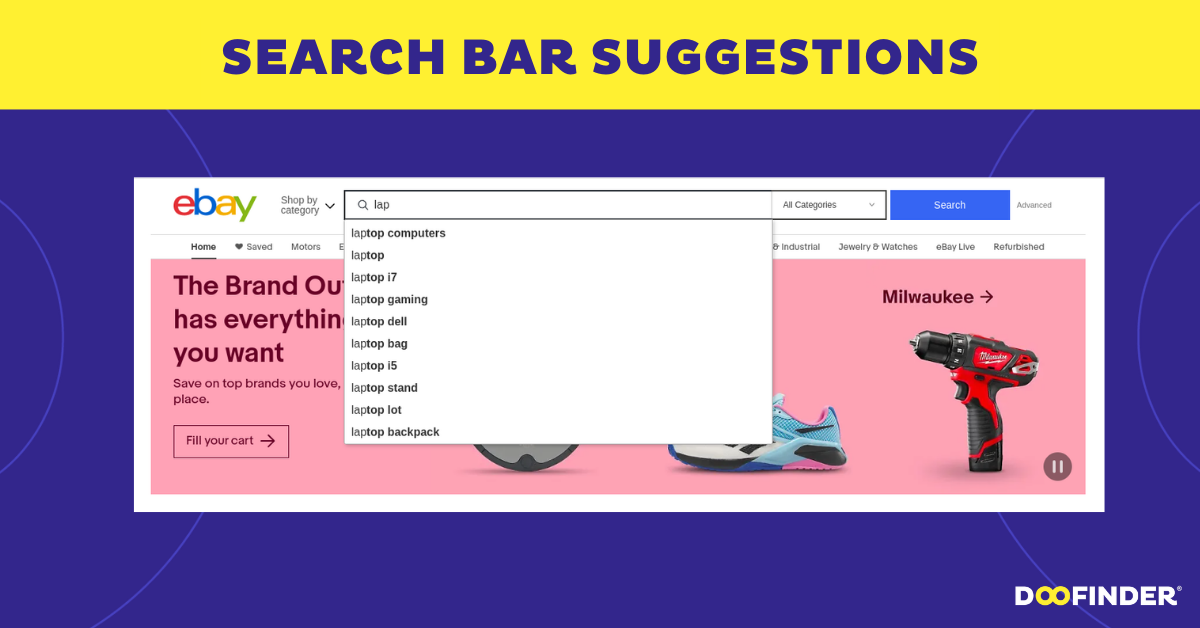
Recommended searches with search personalization involve offering autosuggest search results and autocomplete functionality to assist customers in finding their desired products quickly.
As users start typing their search query, the system provides instant suggestions based on popular or related search terms, refining their search and presenting alternative options they might not have initially considered.
For instance, a customer begins typing “beachwear” in the search bar of an online fashion store.
The website’s search personalization system generates automatic suggestions such as “swimsuits,” “beach cover-ups,” and “flip-flops,” helping the customer find exactly what they’re looking for without having to type the full search term.
- Leading e-commerce platforms like Shopify implement this search personalization technique by offering real-time search suggestions, providing users with a seamless and efficient shopping experience
6. Personalized AI Search Results Tailored to You
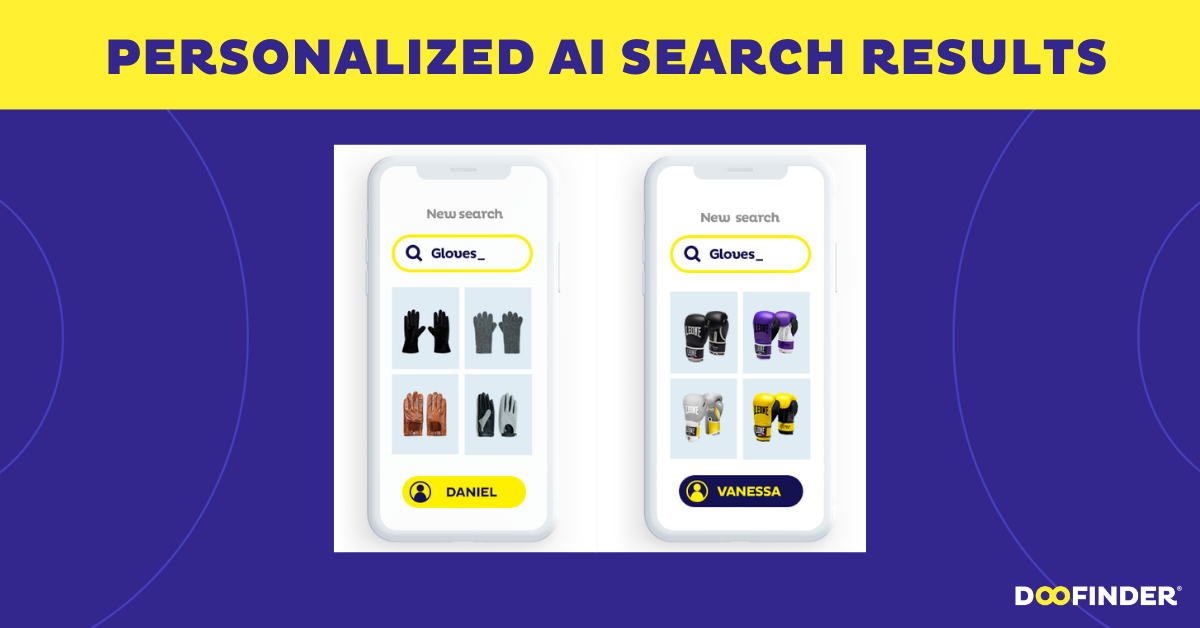
Personalized AI search results encompass delivering search outcomes tailored to each individual customer based on their unique behavior and preferences.
By analyzing a customer’s search history, past interactions, and purchase patterns, you can present them with search results that prioritize products most relevant to their interests.
For example, a user searches for “organic skincare” on an online beauty store.
The personalized AI search results system showcases organic skincare products from their favorite brands, considering their previous interactions and purchases, ensuring a more satisfying search experience.
- Companies like Sephora employ this search personalization technique by utilizing AI algorithms to deliver personalized search results, offering customers a curated selection of products that match their individual preferences.
7. Geo-Located Search Personalization for Location-Specific Offers
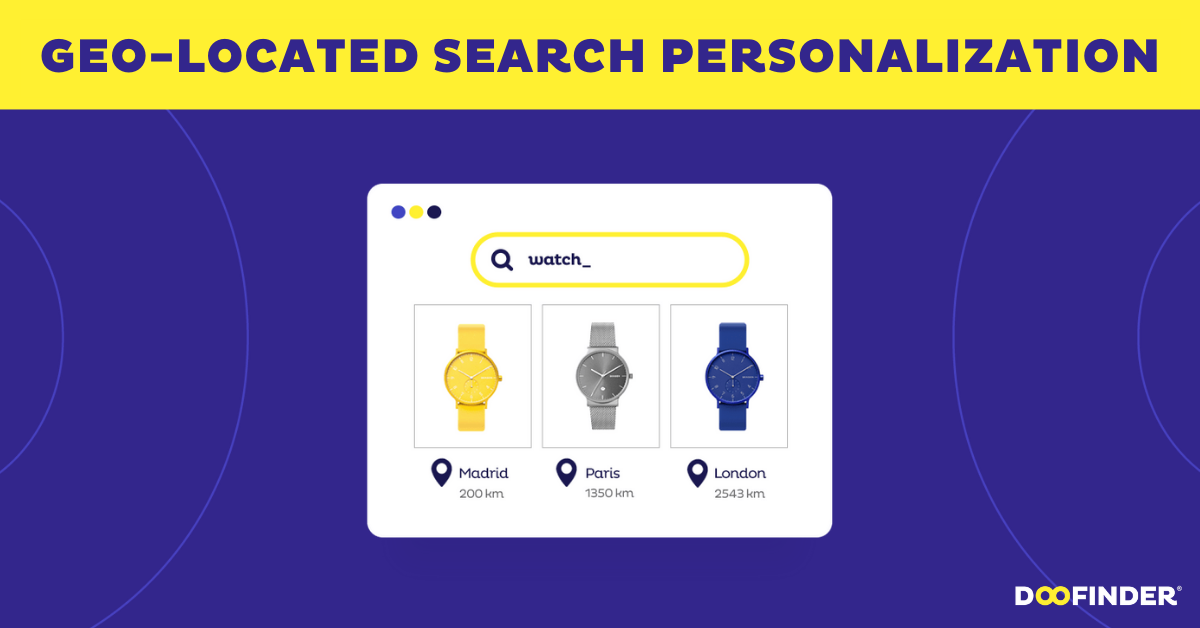
Geo-located search personalization involves displaying products and offers that are tailored to the user’s specific location, optimizing search results for their region.
By recognizing a customer’s location, you can customize search results to showcase products that are available or popular in their area.
For instance, a user in Los Angeles searches for “outdoor activities” on a travel website.
The geo-located search personalization system tailors the results to display popular outdoor destinations and activities in the Los Angeles area, providing relevant information based on the user’s location.
- Companies like Airbnb effectively implement this search personalization technique by considering a customer’s location and adjusting search results to highlight accommodations and experiences available in their preferred destination.
8. Product Bundling Made Personal with Search Personalization
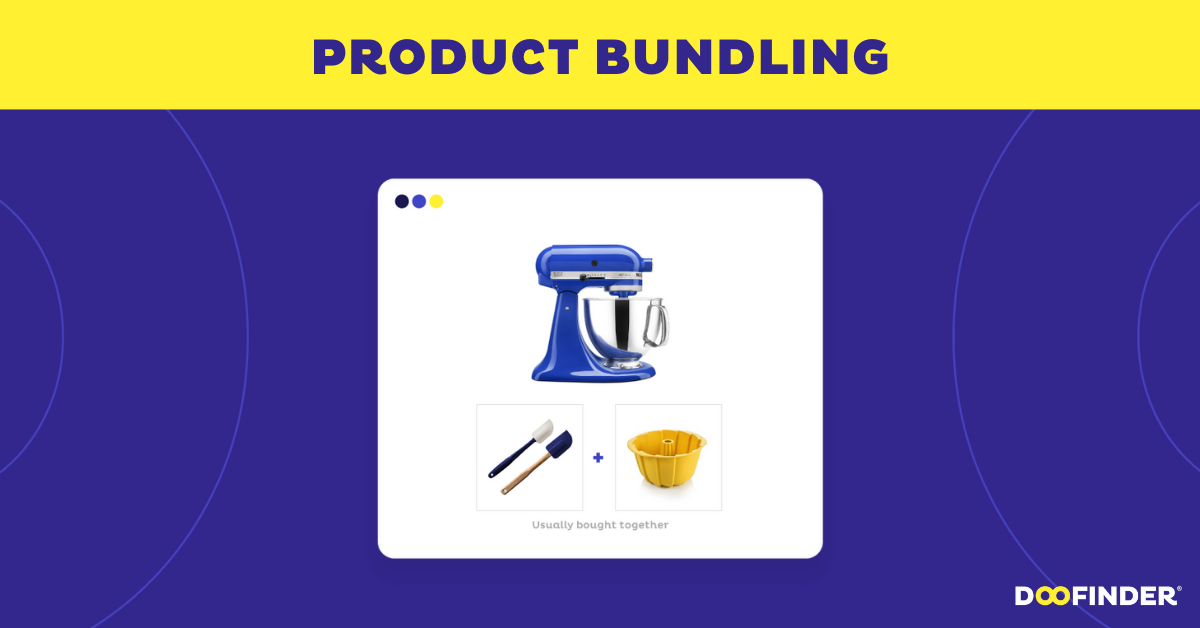
Product bundling with search personalization involves suggesting items that are frequently purchased together, based on individual customer behavior and purchase history.
By recommending complementary products, this personalization technique simplifies the shopping experience and encourages customers to make comprehensive purchases.
For example, a user adds a digital camera to their cart in an online electronics store.
The search personalization system suggests a bundled package with additional lenses, memory cards, and a camera bag, creating a convenient and enticing offer that caters to the customer’s interests.
- Leading e-commerce platforms like Shopify implement this search personalization technique by suggesting personalized product bundles based on each customer’s unique shopping behavior, increasing the chances of upselling and enhancing customer satisfaction.
9. Discover Similar Products through Search Personalization
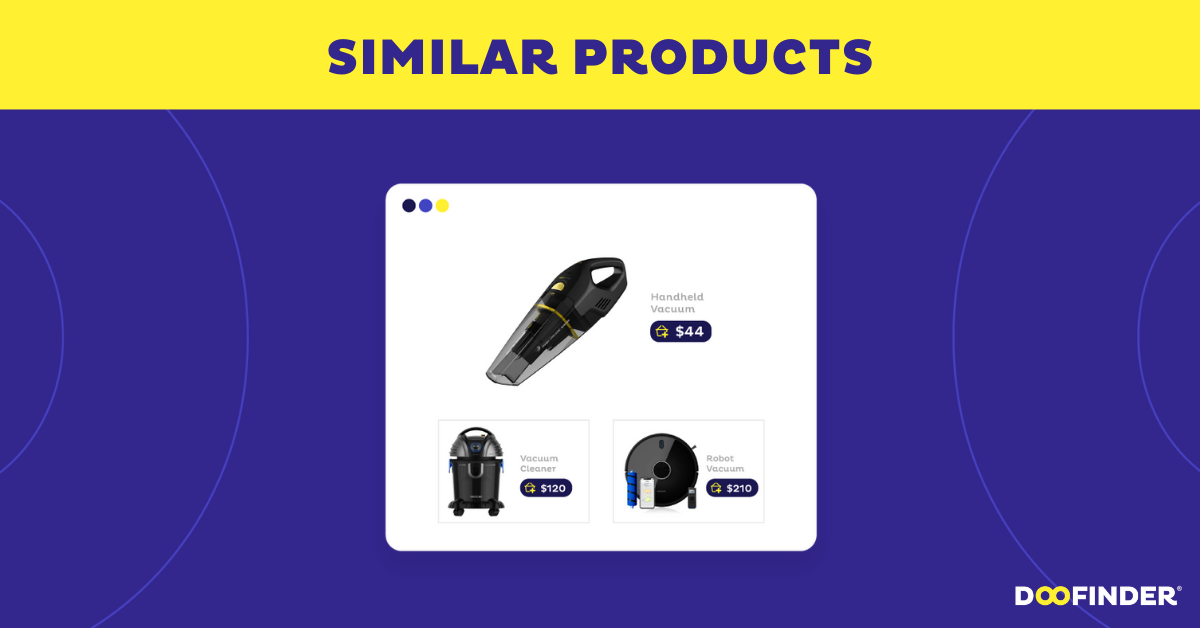
Offering similar products with search personalization involves providing alternative suggestions based on the item being viewed by a customer.
By analyzing the characteristics and attributes of the product, you can recommend similar items that align with the customer’s preferences and interests, expanding their options and encouraging further exploration.
For instance, a customer is browsing a home decor website and views a specific sofa.
The search personalization system presents similar sofas in different colors and styles, allowing the customer to explore various options and find the perfect fit for their living space.
- Leading home decor retailers like Wayfair utilize this search personalization technique by offering a “More Like This” section, displaying similar products to help customers find additional choices that resonate with their tastes and preferences.
10. Search Query History for Seamless Shopping
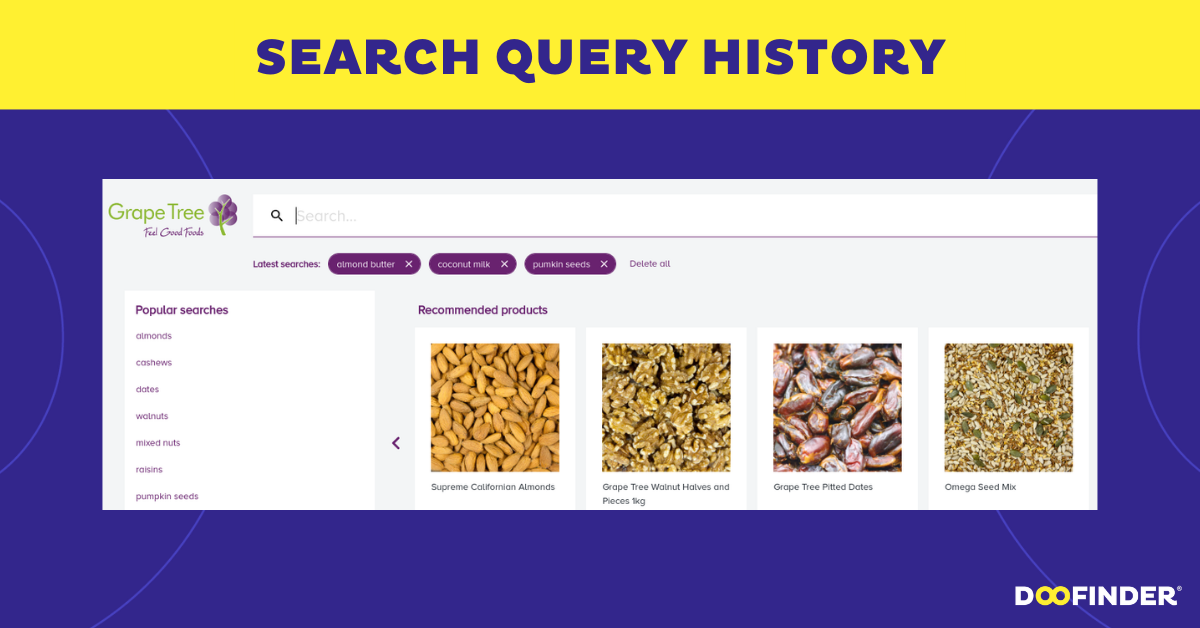
Search personalization with search query history involves the search bar remembering the user’s past search queries, facilitating a smoother and more efficient shopping experience.
By automatically populating the search bar with their last search term, users can revisit and modify their search without having to start from scratch.
For instance, a user searches for “wireless earbuds” and then navigates to a different page.
When they return to the search bar, their previous query is still there, making it easy for them to refine their search or explore related options.
- E-commerce platforms like Etsy implement this search personalization technique, ensuring the search bar retains the user’s search history, offering a user-friendly and personalized shopping journey.
11. Synonym Recognition for Enhanced Search Precision
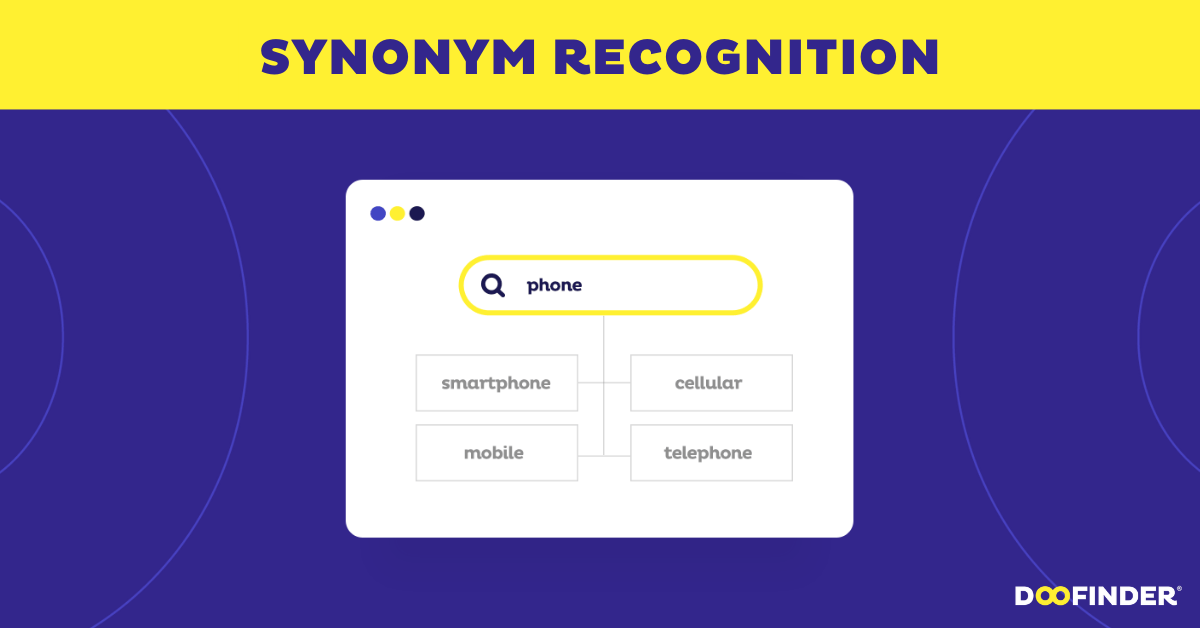
Synonym recognition as part of search personalization enhances the search experience by understanding and interpreting different variations of search terms through natural language search.
The system recognizes synonyms or related terms and provides relevant results, even if the exact search term is not used.
For example, a user searches for “running shoes,” and the search personalization system understands that “jogging shoes” and “athletic sneakers” are synonymous terms, displaying relevant products for all these variations.
- Online retailers like Nordstrom employ this search personalization technique, delivering accurate search results by recognizing synonymous terms and offering a more comprehensive search experience.
Why Personalize Search Engine Results?
The primary goal of personalized search is to enhance the user experience by providing more relevant and useful information.
By understanding your preferences and behavior, search engines can present results that are more likely to align with what you’re looking for, saving you time and effort.
Imagine you’re interested in photography and frequently search for camera-related information. With personalized search, the search engine will learn about your passion and start showing photography-related articles, camera reviews, and photography tips at the top of your search results.
Creating a Balance Between Customer Privacy and Search Personalization
Finding the balance between search personalization and customer privacy is crucial in today’s digital landscape.
83% of consumers are willing to share their data to create a more personalized experience.
Transparency and obtaining explicit consent from customers are essential, with 73% of consumers more likely to trust transparent companies.
Anonymization and aggregation of data protect privacy while allowing meaningful personalization.
Robust data security measures, including encryption and access controls, are necessary to safeguard customer information.
79% of consumers prioritize the security of their personal data when engaging with a brand.
Empowering customers with granular privacy controls and opt-out options respects their preferences and ensures they have control over their personal information.
Continuous monitoring and compliance with privacy regulations, such as GDPR or CCPA, demonstrate your commitment to ethical practices.
By aligning with industry standards, you build trust and maintain a positive reputation.
Striking this balance fosters positive customer relationships, enhances trust, and contributes to the long-term success of your eCommerce business.
Remember, privacy and personalization can coexist harmoniously, creating a win-win situation for both businesses and customers.
How Can Doofinder Help Personalize Your Website’s Search Engine?
Doofinder is a powerful site search engine that goes beyond standard search features and capabilities. It is designed to understand your website visitors and personalize search results based on their behavior and preferences.
- Smart Algorithm: Doofinder utilizes advanced algorithms that analyze your visitors’ interactions, such as clicks and search queries. By doing so, it learns from their behavior and showcases the most relevant results first.
- Customizable Interface: With Doofinder, you can easily customize the search interface to match your website’s look and feel. This creates a seamless and personalized user experience, which can lead to higher engagement and conversion rates.
- Location-Based Personalization: If your business caters to different regions or countries, Doofinder can adapt search results based on the visitor’s location. This ensures that customers see products or content that are available and relevant to them.
- Search Analytics: Gain valuable insights into what your visitors are searching for and how they interact with your search results. This data allows you to fine-tune your offerings and improve customer satisfaction.
- Real-Time Updates: Doofinder continuously updates its understanding of your visitors, meaning that search results remain accurate and personalized as user behavior changes.
By incorporating Doofinder into your website, you can take advantage of personalized search technology to create a more tailored experience for your visitors.
Whether you run an eCommerce store, a blog, or any other website, providing personalized search results can significantly enhance user satisfaction and ultimately lead to increased conversions.
So, as you explore the fascinating world of search personalization, consider implementing tools like Doofinder to offer your website visitors a unique and personalized search experience.
Embrace the power of personalized search and witness the positive impact it can have on your website’s performance!



